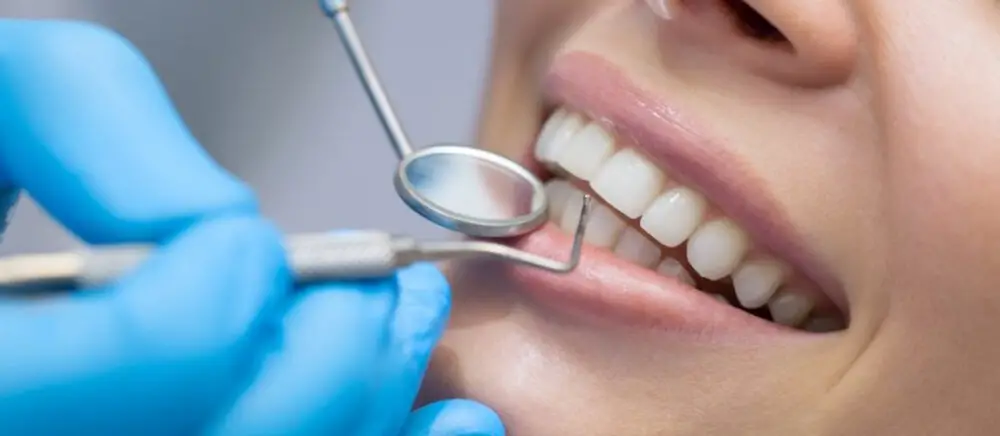When Do Wisdom Teeth Grow? Exploring the Age and Causes Behind Eruption

Wisdom teeth, also known as third molars, are the last set of teeth to develop in the human mouth. These teeth usually begin to emerge in the late teenage years or early adulthood, but the exact timing can vary from person to person. Some people may experience wisdom teeth eruption as early as age 16, while others may not see their wisdom teeth until their mid-20s or even later. The age at which wisdom teeth grow can depend on several factors, including genetics, gender, and overall dental health. The eruption of wisdom teeth can sometimes cause pain and discomfort, leading many people to wonder when they can expect these teeth to emerge. Understanding the age and causes behind the eruption of wisdom teeth can help individuals prepare for this natural process and minimize any associated discomfort. In this article, we will explore the timeline of wisdom teeth eruption and the factors that can influence when these teeth grow. Whether you are a teenager, young adult, or older individual, learning about wisdom teeth can help you stay informed about your dental health and make informed decisions about your oral care.
Wisdom teeth, also known as third molars, are the last set of teeth to emerge in the back of the mouth. They typically appear between the ages of 17 and 25, but can sometimes arrive earlier or later in life. These teeth were once essential for our ancestors who had larger jaws and needed the extra molars to grind down tough, raw food. However, with the evolution of modern diets and smaller jaws, wisdom teeth have become unnecessary and can often cause problems such as impaction, infection, and overcrowding. As a result, many people opt to have their wisdom teeth removed in order to prevent these issues.
Knowing when your wisdom teeth grow is crucial for maintaining good oral health. Wisdom teeth can cause a lot of problems if they do not grow properly, such as crowding, infection, and pain. Understanding the age and causes behind eruption is important because it allows you to take preventative measures and seek treatment if necessary. The average age for wisdom teeth eruption is between 17-25 years old, but this can vary from person to person. Factors such as genetics and jaw size can also affect the timing of wisdom teeth growth. By knowing when your wisdom teeth are likely to grow, you can schedule regular dental check-ups and take steps to prevent any potential complications.
Age of Eruption

The age of eruption, also known as the age of emergence, is the time period when teeth begin to appear in the mouth. This age varies for different teeth, with some teeth erupting earlier than others. The age of eruption for the wisdom teeth, for example, is typically between the ages of 17 and 25. However, some individuals may experience eruption earlier or later than this age range. The factors that affect the age of eruption include genetics, nutrition, overall health, and environmental factors. Factors such as malnutrition, illness, and stress can all cause delayed eruption, while healthy nutrition and proper dental hygiene can promote timely eruption. The age of eruption is an important aspect of dental development, as it can impact overall oral health. When teeth fail to emerge at the expected age, it can lead to complications such as impaction, infection, and overcrowding. Impacted teeth occur when a tooth is unable to emerge properly, causing discomfort and potentially damaging other teeth. Infections can also occur when teeth are not properly erupted, as the gums can become inflamed and infected. Overcrowding is another common issue that can occur when teeth do not emerge at the expected age, as there may not be enough space in the mouth for all teeth to properly align. Therefore, it is important to monitor dental development and seek professional help if any issues arise.
Wisdom teeth, also known as third molars, typically erupt between the ages of 17 and 25 years old. However, the exact age range can vary depending on the individual. Factors such as genetics, diet, and overall oral health can all play a role in the timing of wisdom teeth eruption. In some cases, wisdom teeth may not fully erupt or may not erupt at all, causing potential issues such as infection or damage to surrounding teeth. It is important to monitor the progression of wisdom teeth and consult with a dental professional if any concerns arise.
Variations between individuals are commonplace and can be seen in various aspects of human development and anatomy, including the eruption of wisdom teeth. While most people develop wisdom teeth between the ages of 17 and 25, there are numerous exceptions to this rule. Factors such as genetics, diet, and oral hygiene can all play a role in when and how wisdom teeth develop. Additionally, some individuals may never develop wisdom teeth at all, while others may experience complications such as impacted teeth that require surgical intervention. Ultimately, the timing and manner in which wisdom teeth grow can vary significantly from person to person, highlighting the unique nature of human biology and development.
The age of eruption of wisdom teeth can vary greatly from person to person due to a variety of factors. Genetics, ethnicity, and gender can all play a role in determining when these teeth will emerge. Additionally, lifestyle choices such as diet and oral hygiene can also impact the timing of eruption. For example, individuals with a diet high in calcium may experience earlier eruption than those with a calcium-deficient diet. Furthermore, certain medical conditions and medications can also affect the timing of eruption. Ultimately, the age of wisdom teeth eruption is a complex interplay of various factors and can vary significantly between individuals.
Symptoms of Eruption

When wisdom teeth begin to erupt, it can be a painful and uncomfortable experience for many individuals. Some of the most common symptoms associated with eruption include swelling in the gums and jaw, as well as tenderness and pain in the affected area. Many people also experience difficulty opening their mouths fully or feel pressure in their sinuses, which can make it challenging to eat or speak comfortably. Another common symptom of eruption is the development of cysts or abscesses in the area surrounding the tooth. These can be painful and cause swelling, and may require surgical intervention to remove. Additionally, some people may experience headaches or earaches as a result of wisdom tooth eruption, particularly if the teeth are impacted or growing at an angle. Overall, the symptoms of wisdom tooth eruption can be uncomfortable and disruptive, but with proper care and attention, most people are able to manage their symptoms and recover fully.
The emergence of wisdom teeth, also known as third molars, can cause a range of symptoms. These may include pain or discomfort in the back of the mouth, swelling, redness, and tenderness in the gums, as well as difficulty opening the mouth. In some cases, wisdom teeth can cause headaches, earaches, and jaw pain. Additionally, the eruption of these teeth can lead to crowding or shifting of surrounding teeth, which can cause further discomfort or even damage. It is important to monitor the development and eruption of wisdom teeth, especially during late adolescence and early adulthood, to ensure proper oral health and prevent potential complications.
The severity of symptoms associated with wisdom teeth eruption can vary widely among individuals. Some may experience minimal discomfort, while others may suffer from intense pain and swelling that can interfere with daily activities. In addition to pain, symptoms may include red or swollen gums, difficulty opening the mouth, and bad breath. In rare cases, impacted wisdom teeth can lead to more serious complications such as infection, abscesses, and damage to nearby teeth and bone. It is important to monitor the development of wisdom teeth and seek prompt treatment if symptoms become severe or if there are any signs of infection or other complications.
When it comes to managing symptoms associated with wisdom teeth eruption, there are a few strategies that can be helpful. Firstly, maintaining good oral hygiene by brushing and flossing regularly can help prevent infection and reduce inflammation. Over-the-counter pain relievers such as ibuprofen or acetaminophen can also be effective in managing discomfort. In some cases, a dentist may recommend a warm saltwater rinse or an antiseptic mouthwash to help reduce swelling. If the wisdom teeth are impacted or causing significant pain, extraction may be necessary. It’s important to consult with a dentist or oral surgeon to determine the best course of action for managing symptoms associated with wisdom teeth eruption.
Causes of Delayed Eruption

Delayed eruption of wisdom teeth can be caused by various factors, including genetics, crowding or lack of space, and infections. Some individuals may inherit genes that result in a slower development of their teeth, leading to a delay in their eruption. This genetic factor can be influenced by other conditions such as hormonal imbalances or medical treatments that affect the body’s ability to produce the necessary hormones for tooth development. In addition, the position of the teeth in the jawbone can also contribute to delayed eruption. If there is not enough room for the teeth to grow, they may remain impacted or erupt late, causing discomfort and other complications. Infections can also play a role in the delayed eruption of wisdom teeth. Gum disease and tooth decay can cause inflammation and damage to the surrounding tissues, which may impede the normal growth of the teeth. In some cases, infections can even lead to the loss of adjacent teeth, which can further complicate the development of the wisdom teeth. It is important for individuals to maintain good oral hygiene practices, such as regular brushing and flossing, to prevent infections and promote healthy tooth development. Consulting with a dental professional can also help identify any potential issues that may be causing delayed eruption and provide appropriate treatment options.
Wisdom teeth, also known as third molars, may not erupt on time due to several reasons. One of the primary reasons is that there may not be enough space in the mouth for them to grow properly. This can cause the teeth to become impacted, meaning they remain below the gum line. Additionally, genetics may play a role in the growth of wisdom teeth, as some individuals may not have the genetic makeup to develop them. Other factors that can affect the timing of wisdom teeth eruption include hormonal changes, nutritional deficiencies, and underlying medical conditions. Ultimately, if you are experiencing pain or discomfort in the area where your wisdom teeth should be growing, it’s essential to consult with a dental professional to determine the underlying cause and potential treatment options.
Impacted wisdom teeth are a common dental issue that occurs when the wisdom teeth, also known as third molars, do not have enough room to emerge or grow normally. This can result in pain, swelling, infection, and other oral health problems. Impacted wisdom teeth can be caused by a variety of factors, including genetics, age, and the size and shape of the jaw. While some people may not experience any symptoms of impacted wisdom teeth, others may require surgical removal to prevent further complications. It is important to maintain proper oral hygiene and visit a dentist regularly to monitor the growth and development of wisdom teeth.
Delayed eruption of wisdom teeth can lead to a range of complications. These teeth, also known as third molars, are the last to emerge in the mouth, usually between the ages of 17 and 25. If they fail to erupt or erupt partially, they can cause problems such as infection, gum disease, and damage to adjacent teeth. Delayed eruption can also cause pain and discomfort, as well as cysts or tumors in the jaw. In some cases, impacted wisdom teeth may need to be removed surgically to prevent further complications. It is important to monitor the growth and development of wisdom teeth and seek dental advice if there are any concerns.
Preventative Measures

Preventative measures can play a crucial role in managing wisdom teeth growth and avoiding complications associated with it. Regular dental check-ups can help in monitoring the growth of wisdom teeth and detecting any potential issues early on. Dentists may also recommend X-rays to assess the position and development of wisdom teeth. Based on the results, they may suggest removal or retention of the teeth. Maintaining good oral hygiene, including regular brushing, flossing, and mouthwash use, can also help in preventing the buildup of bacteria and plaque that can cause infections and gum disease. A balanced diet that is rich in vitamins and minerals can also aid in the proper development of teeth and gums. Additionally, avoiding habits such as smoking and excessive alcohol consumption can help in preventing oral health problems, including complications related to wisdom teeth growth. It is also important to avoid putting excessive pressure on the teeth, such as during teeth grinding or clenching, as this can cause damage and impede the proper growth of wisdom teeth. Following these preventative measures can help in managing the growth of wisdom teeth and ensuring overall oral health.
Preventing complications from wisdom teeth eruption is crucial to maintain oral health. One of the most effective ways to prevent complications is to have regular dental checkups and X-rays to monitor the growth and position of the teeth. If the wisdom teeth are causing problems, such as overcrowding or impaction, they may need to be removed by an oral surgeon. Maintaining good oral hygiene, such as brushing and flossing regularly, can also prevent complications such as infections or decay. In addition, avoiding hard or sticky foods and using over-the-counter pain relievers can help manage pain and discomfort during the eruption process. By taking preventive measures, individuals can avoid the need for more invasive treatments and maintain a healthy mouth.
While exploring the age and causes behind the eruption of wisdom teeth, it is important to emphasize the role of regular dental checkups in maintaining oral health. These checkups are crucial for identifying any potential issues early on, before they become more serious and painful. Dentists can monitor the growth and development of wisdom teeth, and determine if they need to be removed. Additionally, dental checkups involve professional cleaning that can remove built-up plaque and tartar, which can contribute to tooth decay and gum disease. Neglecting regular dental checkups can lead to more costly and painful procedures in the future, making it important to prioritize preventive care.
Maintaining proper oral hygiene is essential to keep your teeth and gums healthy. Brushing your teeth twice a day with fluoride toothpaste, flossing daily, and using mouthwash can help prevent tooth decay and gum disease. It is also recommended to use a soft-bristled toothbrush and replace it every three to four months. In addition to these practices, visiting your dentist regularly for cleanings and check-ups is important to ensure any potential issues are caught early and treated promptly. By practicing good oral hygiene habits, you can keep your teeth and gums healthy and prevent the need for more extensive dental work in the future.
In summary, wisdom teeth typically grow between the ages of 17 and 25, but can also appear much later or not at all. Genetics and evolutionary changes in human diets are believed to play a role in the prevalence of wisdom teeth eruption. Factors such as lack of space in the mouth, impaction, and infections can lead to pain and discomfort, requiring extraction. However, in some cases, wisdom teeth can grow in without issue and serve as functional teeth. It is important for individuals to monitor their oral health and consult with a dentist if experiencing any symptoms related to wisdom teeth eruption.
Understanding wisdom teeth eruption is crucial for maintaining good oral health. Wisdom teeth are the last set of molars to emerge and often grow in an unusual direction or become impacted, causing pain and discomfort. Knowing when to expect their eruption can help individuals prepare for the necessary dental care, such as extraction or orthodontic treatment. Age is a significant factor in wisdom teeth growth, with most people experiencing eruption between the ages of 17 and 25. However, genetics and environmental factors can also play a role in the timing and causes of wisdom teeth eruption. Therefore, it is essential to consult with a dental professional to monitor the growth of wisdom teeth and ensure proper care.
It is crucial to seek professional advice if you experience any symptoms or concerns regarding wisdom teeth growth. While it is a natural process, the eruption of wisdom teeth can cause significant discomfort and pain. Ignoring the symptoms can lead to severe complications such as gum disease, tooth decay, and even cysts. Therefore, it is essential to consult a dentist or oral surgeon who can examine your teeth and provide proper guidance. They can also suggest appropriate treatment options such as extraction or medication to alleviate the pain and prevent any further complications. Seeking professional advice can help you stay informed and take necessary steps to maintain optimal dental health.
Conclusion

In conclusion, the eruption of wisdom teeth is a natural and inevitable process that occurs in most individuals. However, the age at which they grow and the causes behind their eruption can vary from person to person. While some may experience the emergence of their wisdom teeth in their late teens or early twenties, others may not see them until their thirties or later. Additionally, factors such as genetics, diet, and oral hygiene can all play a role in the growth and development of wisdom teeth. Despite the potential discomfort and complications that can arise from their eruption, it is important to remember that the emergence of wisdom teeth is a normal part of human development and can be managed with proper care and attention.







